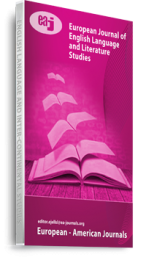This paper will investigate the subtle and sensitive questioning of Women’s condition in Pakistan in Farooqi’s novel, The Story of a Widow. Farooqi’s title is misleading and leads one to think that this book too will portray the subjugated position of women in a patriarchal society but on closer investigation it is seen that Farooqi points towards the hindering and cowardly mindset of women in giving and supporting independence to their own kind. The portrait of the dead husband symbolizes the patriarchal presence. It is important to see that the judgmental attitude of the man is perceived by the wife even when he is no more. This is indicative of how powerfully the society is entrenched in the myth that man is wiser and more capable than the woman and therefore must remain in the driving seat. Despite the complete physical absence of Akbar Ali, Mona’s deceased husband, he continues to figure prominently in her thoughts. What is worth appreciating is the resilience of Mona with which she continues to defy and rise above the looks of rebuke and chastisement that Akbar Ali’s portrait continues to impart. After widowhood, Mona gains money as well as the liberty to make her own decisions yet she is, throughout the novel, cowed down by her sister and her daughters, relations that one would otherwise expect to be supportive and understanding. Through the struggle of Mona, Farooqi highlights the importance of self-growth and self –autonomy which can only be obtained by making ones own decisions, shouldering the burden of error, living through agony and finally coming out not triumphant but stronger and wiser i.e like the men.
Keywords: Gender, Reformation, Self-growth, Vulnerability, liberal, sensitivity

